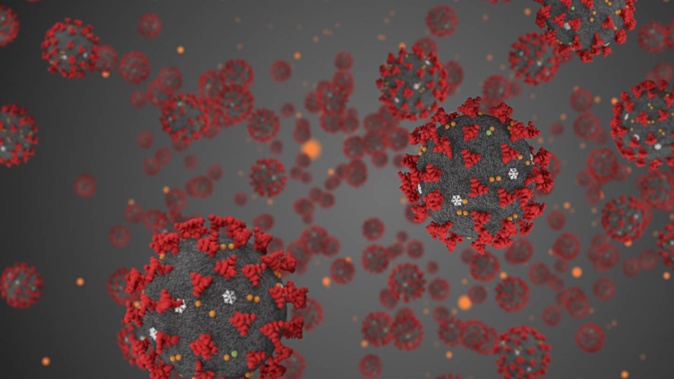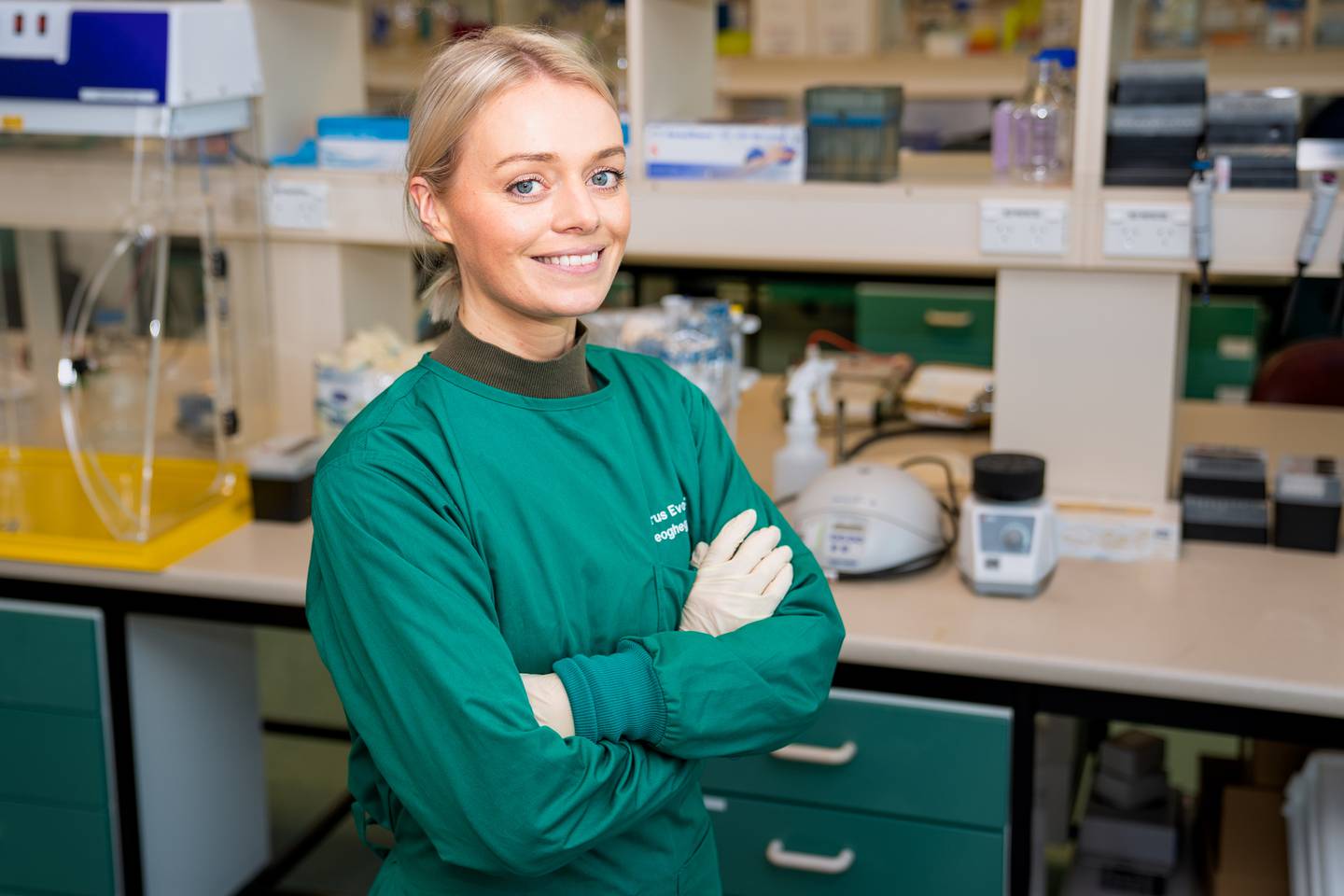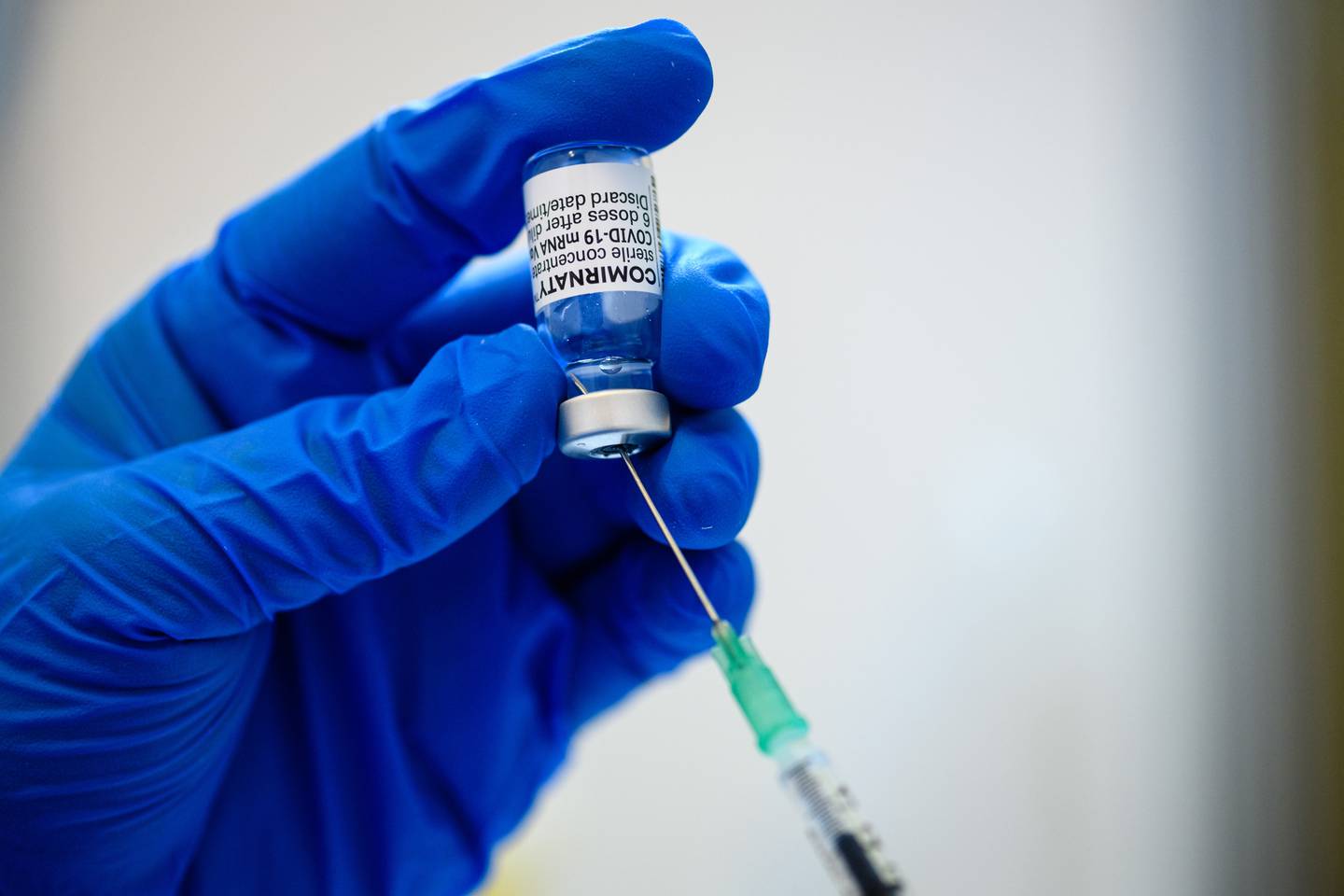
Modellers estimate as many as 1.7 million Kiwis have been exposed to the coronavirus – while more than four million of us have received at least one dose of the vaccine. What does that mean for immunity and our risk of reinfection? Jamie Morton explains.
First off, how do we get reinfected with the same virus?
Reinfections aren't at all uncommon in viruses – and that's no different with the ever-evolving scourge that causes Covid-19.
When we're infected with the Sars-CoV-2 virus, or when we're vaccinated, our immune system produces a response – namely through producing antibodies trained to recognise and fight it if they encounter it again.
University of Auckland immunologist Associate Professor Nikki Moreland said it was entirely expected that this natural resistance waned over time.
"When the infection threat is no longer there, those antibody levels go down, but we have a baseline level of memory that can kick back in."
Work by Moreland and colleagues, using samples taken from a group of patients from Southland who were infected during New Zealand's first wave, showed this protection lingered long in earlier variants.
"What we saw with the original, or the Wuhan version of the virus, was that neutralising antibodies, which are really important for our protection with infection, were persisting out to nearly a year."
What are we learning about Omicron and reinfections?
As her team recently found in an updated study, antibodies from prior infection with the original type unfortunately didn't hold up as well against Omicron.
"There was essentially no cross-protection at all against it."
Around the world, the quick-spreading variant has been causing so many reinfections because of the sheer number of changes, or mutations, within the spike protein that it uses to gain entry to our cells.
"Because Omicron has lots of differences in its spike protein, it can evade that first line of defence we have: the antibody response we've generated following a vaccination or prior infection with a different variant like Delta."

University of Auckland immunologist Associate Professor Nikki Moreland. Photo / Supplied
Last month, researchers reported in The New England Journal of Medicine that, while having been infected with an earlier variant produced a response about 90 per cent effective against Delta, that fell to just 56 per cent against Omicron.
Slightly more encouraging was the fact previous Covid-19 infection did offer a relatively high level of protection against severe, critical or fatal disease, with the same researchers reporting effectiveness of 100 and 78 per cent against Delta and Omicron respectively.
"We'd hope that reinfections with the same variant should become less and less severe, because you're building up memory to it," Moreland said.
Will New Zealand see a second wave of Omicron infections?
Many countries are now being hit with second waves – and for a clear reason.
When Omicron began washing over the globe, it was travelling in the form of its original type, BA.1.
Since then, we've seen the rise to global dominance of the faster-spreading BA.2 type, which has caused case rates to soar again in countries that were hit by Omicron earlier.
The subtype shares the same 32 mutations with BA.1 – but many others that set it apart.
"We might talk about BA.1 and BA.2 as both Omicron, but actually, they're quite genetically distinct – and we may even think of them as different variants," University of Otago virologist Dr Jemma Geoghegan said.
"That's meant that places that only experienced BA.1 are seeing cases increase again."

"The ability to escape immunity is the very thing the virus needs to have to evolve," University of Otago virologist Dr Jemma Geoghegan says. Photo / Supplied
The good news was that being infected with BA.1 still appeared to provide good cross-protection against BA.2 – and that reinfection with one after the other was uncommon.
In a Danish study that examined more than 1.8 million cases over three months, there were fewer than 50 instances in which people contracted BA.2 after having had BA.1.
A similar trend was observed among more than 500,000 sequenced cases in the UK, of which just 43 possible cases of BA.2 reinfection were discovered.
In another positive, boosters worked similarly against both sub-types – and on an individual basis, BA.2 infections didn't necessarily make people sicker.
Because New Zealand has effectively been experiencing two Omicron waves at once – BA.1 and BA.2 – Geoghegan thought it unlikely we'd see that same BA.2-powered second surge other countries are experiencing.
If we did happen to suffer another Omicron wave later this year, it might simply be because our immunity against either type has waned.
"Essentially, once you've been infected, it's thought that you're protected against reinfection, certainly with the same variant, for a good three months," Moreland said.
How does natural immunity compare with vaccine immunity?
Soon after Omicron emerged, it became quickly apparent that our two-dose vaccine rollout wouldn't be enough to shield us from it.
In the UK, officials alarmingly reported that, about 20 weeks on from the second shot, the vaccine's effectiveness against Omicron symptoms had plummeted to just 10 per cent.
However, a third dose – the "booster" – could lift that protection against symptomatic infection again – albeit not to levels it would have against Delta.
Recent surveillance data collected in the UK indicated vaccine effectiveness against symptoms from either BA.1 and BA.2 fell to less than 20 per cent about 25 weeks or more after a second dose - but climbed to around 70 per cent two to four weeks after a booster.
Another study published this month explored data from some 2.2 million people in Qatar who'd received at least two doses of either the Moderna or Pfizer vaccine.
It found booster effectiveness against symptomatic Omicron was 49 per cent, compared with people who'd had only two doses, while effectiveness against symptomatic Delta was 86 per cent.
Importantly, though, it found boosting was still about 76 per cent effective at protecting Omicron-infected people against hospitalisation and death.
As for how three courses of the vaccine compared with natural infection for generating good immunity, being boosted was still the safest and most effective form of protection.
"There's now a lot of data around multiple exposure – either with three vaccinations, or two doses of the vaccine plus infection – and those three exposures, if well-spaced, look to give a good level of protection," Moreland said.
"However, we know that people get infected with different levels of virus.
"With vaccination, everyone receives an amount that has been determined to generate a really good immune response.

Officials are already considering a fourth dose for vulnerable groups, including older people. Photo / Getty Images
"That's why people are strongly encouraged to get boosted, even if they've been infected, because infection comes with a lot of variability."
As for those who tried to rely on natural immunity only, current hospital data emphasised the danger of going unvaccinated. It showed teens and adults over 12 who hadn't received a single dose were four times more over-represented than those who are vaccinated.
Officials are already considering a fourth dose for vulnerable groups, including older people.
Will having had Omicron give us any immunity against what comes next?
One of the biggest question marks hovering over the pandemic is what the next variant will look like – and scientists expect our immunity to current ones will play a big influence.
"The ability to escape immunity is the very thing the virus needs to have to evolve," Geoghegan said.
"So, the next variant is only going to be fitter if it can escape the protection we've got already – and often this is from past infection, because of the inequitable vaccine coverage we have in the world today."
In the US, researchers at the Walter Reed National Military Medical Centre are pushing forward with a universal Covid-19 jab, using an iron-based protein called ferritin that could potentially recognise multiple spike proteins at once – and hopefully that of coming variants.
Development of this "super vaccine" has reached the first of three clinical-phase trials – but whether scientists would ever manage to create something that would give strong and lasting immunity against the virus, in all its potential forms, remained to be seen.
Moreland nonetheless hoped the Omicron experience might help prepare our immunity for whatever follows it over the horizon.
"We've found Omicron different from other variants in that it enables the immune system to cover more space, in terms of potential protection," she said.
"But we don't know what's coming next."
Take your Radio, Podcasts and Music with you









